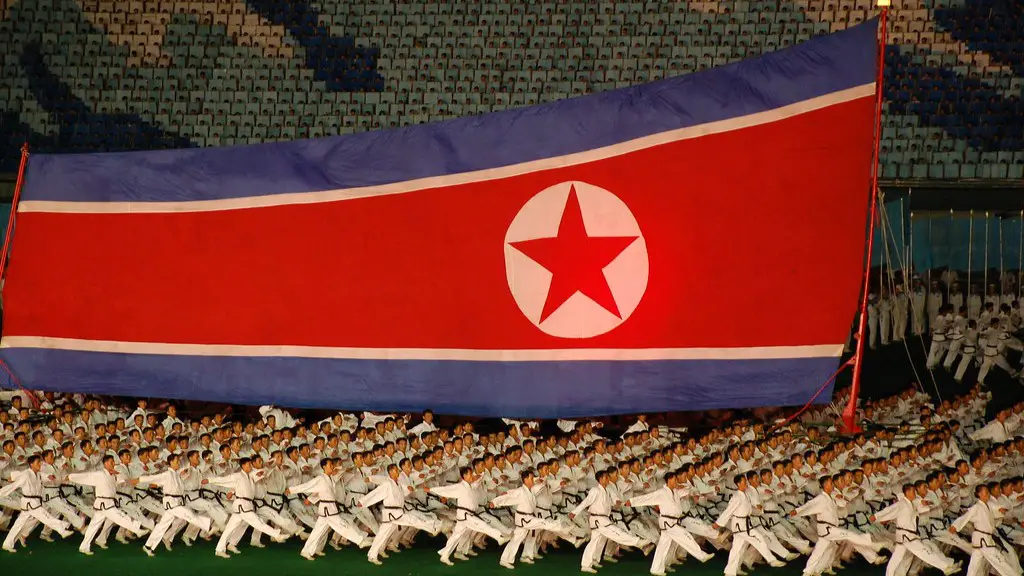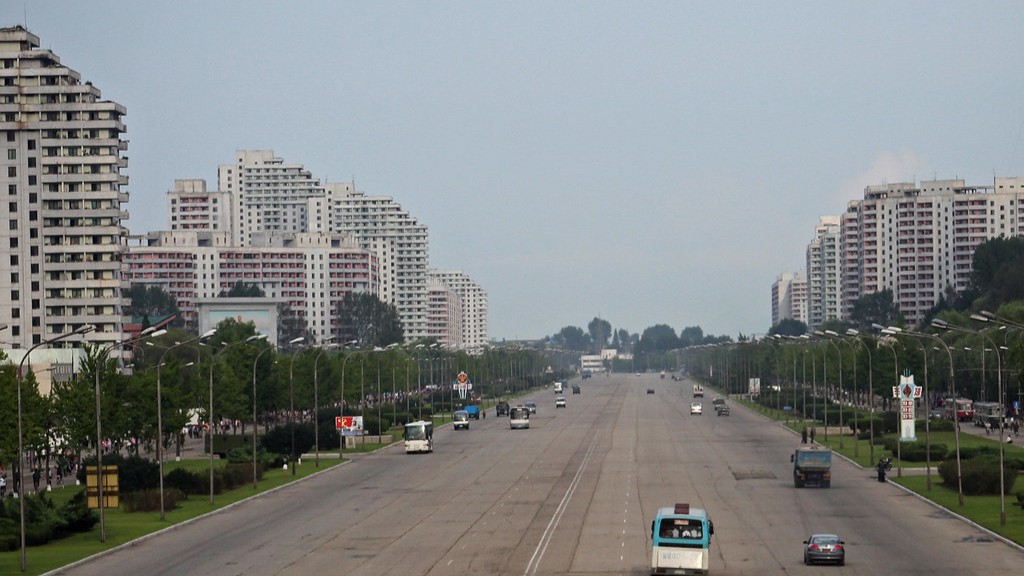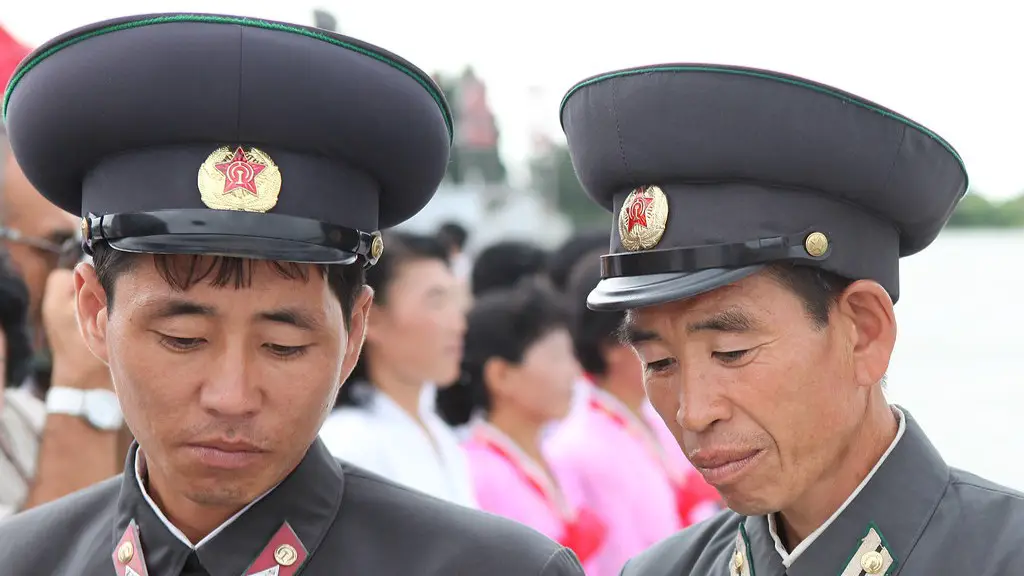What is it about North Korea that has earned it such a bad reputation in the eyes of many? This is a fair question. The answer may involve its political system and the actions of its leaders. Many other nations in the world have laws, governments and practices that could be seen as oppressive or unjust, but the secretive and oppressive nature of North Korea’s government is something that causes international concern.
The government of North Korea is ruled by a single authoritarian leader and a single party. This means that they do not allow citizens to express their opinions, nor do they hold free and fair elections to choose their leaders. Moreover, freedom of speech and freedom of the press are completely restricted. Any criticism of the government or its policies is punishable by imprisonment.
Furthermore, North Korea has a notorious record on human rights. According to the United Nations, North Korea is guilty of serious violations of human rights. This includes the torture and execution of political prisoners, interference in the right to privacy, and the widespread practice of kidnapping and forced labor.
It is also important to note that North Korea’s militaristic attitude has created tension and hostility with its neighbors and the rest of the world. For example, North Korea’s controversial nuclear program has raised concern and criticism from many countries. In addition, North Korea has been accused of contributing to the proliferation of weapons of mass destruction and of being involved in the funding and supply of arms to other nations .
Additionally, North Korea has a poor relationship with its closest neighbor, South Korea. The two countries have been in a state of war since the 1950s and continue to have a hostile relationship to this day. This is an issue of great concern, as tensions are often high and the possibility of military confrontation exists.
All of these facts and more make it clear why North Korea is seen as a hostile and aggressive nation. Although no country is perfect, North Korea’s government and policies have resulted in the nation being labelled as a “rogue state”.
Economy of North Korea
North Korea’s economy is largely isolated from the rest of the world. This has resulted in a very low GDP and an impoverishment of the population. It is estimated that as many as 3 million North Koreans suffer from hunger and malnutrition due to lack of access to food and economic opportunities.
Moreover, North Korea’s economy is heavily reliant upon foreign imports from countries such as China and Russia. Due to economic sanctions, however, these imports are increasingly limited. This has caused immense hardship for many of the country’s citizens.
Furthermore, much of the country’s economy is owned and controlled by the state. This has resulted in inefficiencies and a lack of competition in the market. Moreover, it has led to an overreliance on government-controlled industries, which are often unable to meet the needs of the population.
Finally, North Korea has historically invested very little into its own infrastructure, resulting in a massive gap between the country’s rural and urban populations. This disparity only serves to further exacerbate North Korea’s economic woes.
Political Repression & Human Rights Abuse
North Korea is widely known for its rampant political repression and human rights abuses. The government has been accused of imprisoning citizens for political reasons and subjecting them to torture and other forms of physical and psychological abuse.
In addition, North Korea has been criticized for its policy of “songbun,” or class-based discrimination. This system provides some citizens with privileged access to food, healthcare, education, and other basic necessities, while denying these rights to others.
Moreover, North Korea’s government has been accused of using forced labor to bolster its economy. Forced labor camps have been documented throughout the country, and are used to either punish people who have criticized the government or to extract labor from them.
North Korea’s oppressive rule also extends to the right to free expression. Citizens are subject to severe censorship and are not allowed to express any dissenting opinion. In fact, the government has even gone to the extreme of preventing access to the internet for most of its citizens. This lack of access to information only serves to further entrench North Korea’s oppressive rule.
International Sanctions
Due to North Korea’s aggressive and dangerous policies, many nations have imposed international sanctions on the country. These sanctions, however, have had a limited effect on the country, as North Korea has continued to pursue its nuclear ambitions and other hostile policies. Moreover, the sanctions have only served to further impoverish the citizens of North Korea, as they have made it even more difficult for the nation to access essential imports and resources.
Despite international condemnation and condemnation, North Korea continues to pursue its nuclear weapons program and other aggressive foreign policies, while its citizens continue to suffer from the oppressive nature of its government. This has led many experts to argue that something more drastic must be done to bring about change in the country.
Global Leadership Response
In light of North Korea’s actions, many world leaders have voiced their concern and urged the nation’s leadership to reconsider their policies. However, few have offered a concrete plan of action to bring about positive change in the country.
This is partly due to the fact that North Korea has been largely isolated from the rest of the world for decades, and the international community has struggled to compel the country’s leadership to change their policies. This has proved to be an incredibly difficult task, as North Korea is known for its aggressive stance towards the international community and its refusal to budge on key issues.
What Can be Done?
Despite North Korea’s dangerous policies, there is still hope for the future of the nation’s citizens and the international community. Change can come in the form of dialogue and diplomacy, with the international community working together to find a peaceful solution.
Moreover, the international community should focus on finding ways to help those in North Korea who are suffering from the oppressive and dangerous actions of their government. This could come in the form of increased aid, economic sanctions, or even significant economic and political reform.
Finally, it is important for the international community to remember that North Korea is not a monolith. The country is made up of people, many of whom are suffering from the oppressive policies of their government. It is important to remember that positive change is possible, and that the collective power of the international community can make a difference.





